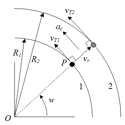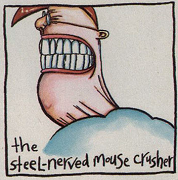|
bunnyofdoom posted:Conscription was introduced in 1917. Vimy occured April 1917, Amiens and Hundred Days were 1918. Just checked on Wikipedia and it looks like only about 25,000 conscripts from Canada ever reached the front, so the vast majority of the army would be volunteers. http://en.wikipedia.org/wiki/Military_Service_Act_(Canada) Captain_Maclaine posted:This varies considerably depending on war, and army. Very true, but if you want to look for reasons why Canadians would fight better than average (not saying they do, I'm not Canadian and don't have a dog in the fight), then I think being a primarily volunteer army facing primarily conscripted armies might have something to do with it.
|
|
|
|

|
| # ? May 5, 2024 19:35 |
|
A Winner is Jew posted:I'm an American and the general sentiment is that in WW1 & WW2 Canadian troops punched above their weight... so there might be some truth to that or it might be that we just really like/respect our quiet neighbors to the north. Canadians I don't think were as well regarded in WW2 as they were in WW1. The leadership wasn't quite as good, and the Canadians got bogged down pretty fighting in the Netherlands and in retrospect, fought very good German troops on very difficult ground.
|
|
|
|
OctaviusBeaver posted:Very true, but if you want to look for reasons why Canadians would fight better than average (not saying they do, I'm not Canadian and don't have a dog in the fight), then I think being a primarily volunteer army facing primarily conscripted armies might have something to do with it. Maybe. Personally, and not meaning any insult to the Canadian Corps, I don't see any massive differences between the armies fighting in Europe until the Americans show up at the end, by which time everyone else is exhausted, starving, and just about out of manpower reserves. Not to say that American swooped in and saved the day of course, only that by the time they showed up everyone else was on their last legs or close to it, so the well-fed and confident doughboys looked all the more impressive for it (as was commented on by any number of British diarist, including Vera Brittain if I remember right). One thing I will say, however, is that for all their service, Canadian involvement did lead to some mildly embarrassing and stereotype-reinforcing propaganda: 
|
|
|
|
The beaver being a symbol of Canada isn't really a stereotype or an insult.
|
|
|
|
Oh my God the cigar Why is the lion's tail bandaged?
|
|
|
|
Plenty has been written about the big powers during the Great War, but not many know about the smaller nations who got involved in something that was way beyond their ability. This is an effort post about the miserable and catastrophic experience of Portugal during The Great War. The day is the 1st of February, 1908, and Carlos I the Greatest Portuguese King in the history of Portugal, does his greatest achievement. He gets murdered in a public square. Two years later, his heir, Manuel II goes into exile, and on October the 5th the First Portuguese Republic is established. This young Republic however had a lot of problems in it's hand. Maintaining the Empire cost more than it was worth, there was socialists everywhere, a lot of debt, and only England and the latin-american republics recognized it. As the war in 1914 breaks out, prime-minister Bernadino Machado doesn't know what do. Portugal is allied to Britain, but Britain advises Portugal to not declare war, but neither declare neutrality. So on the 7th of August, Machado goes to congress and proclaims that it supports Britain but won't declare war on Germany. Why was that Britain didn't want it's ally in the war at the start? For those that don't know, Portugal and England are the world oldest allies. An alliance formed in 1373, and still in effect in 2014, and forever I imagine. Since being allies Britain has always looked out for the best interest of it's friend Portugal. Due to the dire financial situation of Portugal losing the colonies of Angola, Mozambique, and Timor was a reality at the end of the 19th century. So in 1898 Britain signs a pact with Germany, to partition Angola, Mozambique and Timor, if Portugal lost control. In 1913 this pact was revised, but Germany doesn't sign it as it believed it wasn't getting a fair deal. With the breakout of war, Germany is free to take all the Portuguese colonies by force of arms if it so desired. But Portugal didn't leave it's territory undefended. Just a week after Machado talks to congress, Portugal begins planning the military reinforcement and organization of Angola and Mozambique. In 25th of August 1914, German soldiers enter northern Mozambique. In 11th of September, the first Portuguese Expeditionary Force arrives in Africa, and until March of 1916, Portugal and Germany fought an undeclared war in northern Mozambique and southern Angola to little of note. In Europe, the war changed from "a pleasant thing that will be wrapped in a week" to "oh god what the gently caress are we doing" quickly. At the end of September of 1914, France asks for Portugal to send officers and artillery. Some weeks later, Britain supports the French request. At the same time, Germany and Austro-Hungary ask Portugal to give safe harbour to some of their Atlantic trade merchants, to which Portugal agrees. In the 19th of October of 1914, things turn sour to the government of Machado as the skirmishes in Angola against Germany are made public. Entering the war on the side of Britain then become a certainty. On the 20th of October a monarchist attempts a coup so Portugal wouldn't enter the war. Coup fails. A month later the congress of Portugal is summoned by Machado so he can obtain the greenlight to declare war on Germany, and enter the war as a free ally on the side of Britain. Days later after the vote Portugal begins to mobilize. Thought there was no declaration of war to came out of Portugal. In a war filled with embarrassing moments and incredibly ineptitude by everyone, what transpired between November 1914 and February 1916 in Portugal is some of the most sad state of affairs of the Great War, and some of the most embarrassing moments in Portuguese history. As mobilizations begins, everything erupted in the young republic. The Democratic Party was the first to suggest that the three big parties(Republican, Democratic, Evolutionist) get together and form "A União Sagrada"(Sacred Union) to hold the country together, but it failed. The government of Bernadino Machado fell in December. The Democratic party steps up and governs itself, with Victor Hugo de Azevedo Coutinho in it's leadership. It barely lasted a month. Such incompetent and corruption displayed in such a small time gave this government the fun nickname of "Os Miseraveis de Victor Hugo"(The Miserables of Victor Hugo) and "Adega do Braga"(Braga's Winecellar) because of known Republican drunk Alexandre Braga being connected to the government. President of the Republic Manuel Arriaga fires Victor Hugo in 24th of January of 1915 and gives power to General Pimenta de Castro who immediately turns the republic into a dictatorship. This military dictatorship begins calling the democratic partyand the liberals, a bunch of idiots for not preparing for war. This small event would trigger a lot of bad blood between the republic and the military, that would pay in dividends by 1926s. Despite being run by a general, Portugal still doesn't declare war, and makes little to no progress in preparing for war. This guy didn't last long either. At the end of November 1915, a new government headed by Afonso Costa is sworn in by the new congress elected President of the Republic, Bernardino Machado.(Yes the same!) On the 17th of February, Britain is starting to lose patience, and through the treaty of Windsor(our alliance), orders the government of Afonso Costa to seize the various German and Austro-Hungarian vessels that were taking harbour in Portuguese territory. At the same time, Afonso Costa asks if Britain can force Portugal to declare war before seizing the ships, but no such thing happened.(This actually happened) On the 23rd of the same month, Portugal seizes the ships. On the 9th of March of 1916 Germany declares war on Portugal. The utter incompetence to declare war on Germany for over a year, and failing to mobilize a bare bone army for almost two years is absolutely baffling. Many argue that the plan was for Britain to force Portugal into war, or Germany to declare as they eventually did, so the government of Portugal could unite the people. "We are being attacked!" and such. It all sounds true on first, until you realize what was going on. The reality was when Bernardino Machado started mobilization, he discovered that there was nothing to mobilize, there was no money to outfit an army, most of the troops available were in Africa fighting skirmishes with bored German troops, and there was little to no public support for war. Portugal suddenly came to reality, and it's plan for the Great War, was for the war to end before they were forced to face the music. Only in December of 1916, at last minute, did Norton de Matos together with General Tamagnini, organized a small expeditionary force to send for Europe. In January 26th the Corpo Expedicionario Portugues(CEP), over 50.000 soldiers, departs for Flanders. The fate of the poor CEP is a particular inglorious one. Like other armies of the time, bad leadership would be found, and the Portuguese soldiers didn't even knew the mess they were getting into. Massive bombardments, gas attacks, and a very motivated German army would fall on the CEP. During 1917 the CEP gave small support during the third battle of Ypres and other British engagements, but it's moment in the sun would come only in 1918. Before that, the first republic went belly up back home. The economical hardships in Portugal became worse, and as the first Portuguese casualties starting coming in, opposition against the war became louder. The government started to repress this disquiet. In May, government starts to suspend liberties, in July martial state is declared in Lisbon after riots, in September the Unions declare general strike. In December a small revolution happes, and Major Doctor Sidonio Pais assumes control of the Republic. The first Portuguese Republic is suspended. In another show of incompetence and corruption, the British and new Portuguese troops were suppose to relieve the CEP in Flanders that December, however there was no boats available to do that, and Sidonio Pais did not bother to secure other form of transportation. The Portuguese soldiers would be stuck in Flanders without chance of getting leave. Several officers are called by Pais to return, either because of political reasons, or because they are friends of friends. The richest officers also manage to get away. The CEP is abandoned to it's fate by it's own government.  On the trenches of Lys. So April of 1918 comes, and while the government back in Portugal is busy throwing guilt around, the Germans were coming to Lys. The CEP was inexperienced, ill-equipped, it had no morale, half of it's officers were gone, and now it faced a very experienced and well-equipped German army, an army that was fighting for it's dear life. Desertions, mutinies, and suicides happened regularly in the CEP and generals Gomes da Costa and Sinel de Cordes, wrote several times back home that the Portuguese forces should get the gently caress out before tragedy happens. Though Portuguese government paid no attention British High Command was listening, and on the 8th of April late at night, orders the Portuguese on the front to pack and leave and go to the rear lines starting in the morning. The German offence decided that it would be on the 9th that it would begin one of the largest bombing campaigns in the war. The Battle of Lys is the biggest military catastrophe in Portuguese history. As the 20.000 or so Portuguese got the orders to leave the front, the Germans destroyed communications between lines, and at dawn, 100.000 Germans fell on Portuguese Lines. The German plan was "Attack this point. Then we'll see what happens.". It was a terrible battle, 2000 Portuguese died in a blink, other 2000 were never found, 5000 wounded, and 7000 prisoners. The CEP was gone in four hours. Despite such terrible ending, the Portuguese did end up being part of the War myth. I'm talking about the story of Soldado Milhões(Million Soldier). During the retreat Portuguese soldier, Aníbal Milhais born in Valongo Trás-dos-montes(In English it literally means, beyond the hills), found himself alone in his trench and with a lot of angry Germans coming his way. Armed only with his Lewis machine gun, of which the Portuguese fondly called Luisa, he got out of his trench and starting shooting. The Germans refused to advanced against Milhais, because they believed it was a heavily fortified position held by plenty of soldiers, and there was no point. Eventually the Germans discovered they could simply go around him, and the man found himself alone behind enemy lines for three days. He did get out and scoured trenches and no man's land for bullets and continued on shooting at the Germans he found, at the end of his mad journey he finds a Scottish doctor who was drowning in a swamp and saved his life. The doctor told his story around camp, and when Milhais returned to the Portuguese force, his commanding officer said the famous "Tu és Milhais, mas vales Milhões"(You're Milhais, but are worth Millions) Aníbal Milhais didn't do this once, he would do it again some months later, and this time a bunch of British and Belgian officers were there to witness.  The man himself. Bless him.  After lys the rest of the CEP was absorved into the British forces. The rest of the Portuguese participation in the Great War, was mostly digging trenches. Sidonio Pais went up for relection in that same April. He won. He was the only candidate. In December of 1918, Sidonio Pais is murdered by an army Sergeant. As the peace deals begin in Versailles in the space of a month, a northen military junta would declare support for the dead Sidonio Pais, a Monarchy coup in Lisbon and Porto and a brief civil war follows. Later during the year there's elections, and the "Old" first Republic is properly restored. Portugal in the end got what it wanted from the peace deal. It's colonies intact, and it's recognition. The first Republic would last until 1926, when General Gomes da Costa(The same from CEP) pulled a coup and told the republic to get out. He would last barely a year, as a counter revolution led by General Oscar Carmona put it's own Military Dictatorship in charge. The National Dictatorship would last until 1933. In Carmona's government stood out his brilliant finance and economy minister, one Antonio Oliveira Salazar, who had some ideas of his own for the nation. In 1933 there was an for election of President of the Council, he won, and the Estado Novo came to be. The rest is 41 years of pain and misery. Like other European nations, the Great War sealed the fate of Portugal for the rest of the 20th Century. By entering the war, the first republic signed it's death sentence. We were not prepared, nobody wanted a war, nobody really knew what we would gain from joining a war, and all we got out of it was fascists. Though, I think that even if we avoided the war the First Republic wouldn't survive. The First Portuguese Republic is quite infamous, even today. It was hilariously corrupt and inept, there was coups of every kind almost every year, strikes, and it never fixed it's economical and financial problems. The longest head of state stayed in power for one year and 9 days. It was doomed to fail, and doomed to end up in the same place. Maybe we could've spared the lives of so many who went on to die pointlessly in Flanders. It was all so loving worthless.
|
|
|
|
VitalSigns posted:Oh my God the cigar I believe that angle is officially classified as "jaunty." Electronico6 posted:It was all so loving worthless. I was aware that Portugal had fought on the Allied side due to long-standing treaty relations with Britain, and that it was a big mistake, but even by Great War blunder standards that is horrible. It strikes me as similar in some ways to Italy's poorly thought-out opportunism in coming in on the Allies side, only to bleed its army white with failed attack after attack in the Isonzo. More broadly, "It was all so loving worthless" could well be the byline for the entire war.
|
|
|
|
Captain_Maclaine posted:More broadly, "It was all so loving worthless" could well be the byline for the entire war. It really puts into context what a catastrophe World War I was that something like World War II happened only a generation later. Perhaps history's greatest pointless conflict. Speaking of which, I read something a while back, I think in one of my college books, that World War I gave rise to an entire age of philosophical uneasiness across the entire Western world. From what I remember, basically the inter-war period was a period of intense malaise, especially in Europe, but it seeped over to the United States, where it seemed that human achievement during the Industrial Revolution had only led to a miserable conflict like World War I. It manifested outwardly by radical regimes emerging in Germany, Greece, Italy, etc., and especially Fascism becoming more popular because it tapped into a general feeling that World War I proved that constitutional monarchies and democracies had failed. Is that a fairly good summation of the situation, or a bit simplified? I understand there were many causes that made radicalism and Fascism popular before World War II, but the lingering effects of World War I definitely had their part to play.
|
|
|
|
Sylphid posted:It really puts into context what a catastrophe World War I was that something like World War II happened only a generation later. Perhaps history's greatest pointless conflict. Oh I think it's pretty much on the money; WWI really was the death blow to 19th century optimism and faith in progress. Hell, Freud wrote one of his two big sociological works specifically on the phenomenon you describe here, Civilization and its Discontents. The world after the war had had its faith in, well, almost everything it took for granted deeply shaken, and when economic hard times followed it's unsurprising that a lot of people were looking for answers other than that which the established order had to offer.
|
|
|
|
So should we have a recommended reading list for this thread? My contribution is the classic The Guns of August, a very interesting book of the months before the war and the first few months of the war it's self ending at the end of 1914. I have a bunch of others from a few history courses I took, I'll see if I can dig them up. But there is one not about the war it's self but Vienna in 1913 when Hitler, Stalin, Tito, Freud, Trotsky and Lenin were all running around the city. What are people's opinions on the attempted whitewashing/rehabilitation of the legacy of World War One, it's causes, is it taking hold, etc? Captain_Maclaine posted:More broadly, "It was all so loving worthless" could well be the byline for the entire war. This is truth right here. In the West it pretty much stopped being a war by 1915 and was just murder on an industrial scale. I've also held that the political goals of the first world war had always been poorly defined and that conflicts without clear political goals or that develop them tend to be utter disasters, Korea, Vietnam and the Second Gulf War (which the occupation I mean). It's not a theory I have researched in depth yet, or written a clear concise defense of (because irony) so I could be over generalizing it.
|
|
|
|
Some Portuguese propaganda and art from the period. Poster from 1916 with King George V and President Bernadino Soares. Caption "The old Allies Portugal and Great Britain shake Hands".  1917  Newspaper clipping. "Defend the Fatherland! Hate the enemy Watch the spies And eat the FARINHA RAMAZZOTTI soups!"  Big poster going on about THE WAR OF MUNITIONS HOW BRITAIN DID IT. I love this one. EVen if you can't read Portuguese you can guess what each vignette is talking about. Machine gun production going up up up. Women in factories increase production! The real kicker is that it's basically Portugal stating the feats of someone else. (Portugal did nothing of this)  VICTORY!  This was a book that came out in 1921, about the experiences of Portuguese soldier in the war. Title "John Doe, The Unknown Soldier in the Great War. CEP Impressions from 1917-1918."  This one is post-war, remembering Lys. "PORTUGUESE! Two minutes of silence----17 hours 9 of Abril" Adriano Sousa Lopes was a painter sent by the Portuguese Government with the CEP to Flanders, so he could make some propaganda drawings. The notion being, that up and close he could see the bravery and the honour of the CEP and war, and draw more patriotically. Yeah well.  Marching to the front line.  The Trench  Homage to the Unknown Soldier  You ask a guy for some nice propaganda, maybe a lion smoking a cigar, a cute beaver, instead you get expressionism on how things suck. A lot of pictures and more stuff here: http://restosdecoleccao.blogspot.pt/2012/12/portugal-na-i-guerra-mundial-1914-1918.html Word of warning some of those pictures include blown up people. 
|
|
|
|
Electronico6 posted:You ask a guy for some nice propaganda, maybe a lion smoking a cigar, a cute beaver, instead you get expressionism on how things suck. Oh don't you worry. I've spent more than enough time soaking in the horrors of the Great War that I know all about the shocking art that came out of it as well and suspected this thread would head in that direction eventually. Sooner or later we'll be quoting Sassoon and Owens, and posting artwork by Dix and other future absurdists. KomradeX posted:What are people's opinions on the attempted whitewashing/rehabilitation of the legacy of World War One, it's causes, is it taking hold, etc? Thankfully, I've not run into anything I'd take seriously that attempt to claim it was anything other than a monumental shitshow. I would hope the war is far enough back in time that none of the usual suspect would try to warp it to serve modern politics, but hell I've been wrong before. quote:This is truth right here. In the West it pretty much stopped being a war by 1915 and was just murder on an industrial scale. I've also held that the political goals of the first world war had always been poorly defined and that conflicts without clear political goals or that develop them tend to be utter disasters, Korea, Vietnam and the Second Gulf War (which the occupation I mean). It's not a theory I have researched in depth yet, or written a clear concise defense of (because irony) so I could be over generalizing it. This is one of the stronger points I took away from Keegan's book on the war, that after the failure of the war of maneuver in 1914 and onset of trench warfare there was no reason why the Great Powers shouldn't have tried to at least call a halt and preliminarily talk things out. After the "miracle on the Marne" and establishment of the trench lines, it had to be clear to everyone pretty quick that whatever they'd gone to war over was unlikely to be resolved favorably any time soon, if at all. And yet they didn't. About the only serious attempt to broker a peace that I can think of after the war starts properly came from President Wilson sending Edward House to try to mediate between the combatants, which all came to nothing.
|
|
|
|
Captain_Maclaine posted:Oh I think it's pretty much on the money; WWI really was the death blow to 19th century optimism and faith in progress. Hell, Freud wrote one of his two big sociological works specifically on the phenomenon you describe here, Civilization and its Discontents. The world after the war had had its faith in, well, almost everything it took for granted deeply shaken, and when economic hard times followed it's unsurprising that a lot of people were looking for answers other than that which the established order had to offer. In a weird twist of fate, it's always been amazing to me just how much better World War II, a conflict fought with crushing intensity across Europe, Asia, and Africa, a war filled with unparalleled atrocities and countries (in this case, Germany and Japan) whose leaders would prefer to destroy themselves and their country before admitting defeat, ended a lot better than World War I did. That's for a lot reasons, especially that the Soviet Union and United States were the unquestioned superpowers after the war and each had their alliance blocs to protect them from future wars, and the new threat of nuclear weapons, etc. World War II did ignite the Cold War and the ensuing proxy conflicts, both on the US and Soviet side, but it just seemed people were a lot happier with the way peace was reached with the Axis powers than with the Central Powers. There was nothing like the inter-war period of malaise and hopelessness, and certainly no global war a generation later. I like to think the Allies were a lot more unified in what peace was going to look like in Europe, and nothing like the post-World War I peace talks, where you had idealists like Wilson wanting to run the show, France having a 50 year axe to grind against Germany, and Britain wanting even more territory and assurances for their empire. It's just amazing what a colossal disaster the war was, from start to finish. It's like the World War II Allies looked at the World War I Allies and saw everything they shouldn't do.
|
|
|
|
Captain_Maclaine posted:About the only serious attempt to broker a peace that I can think of after the war starts properly came from President Wilson sending Edward House to try to mediate between the combatants, which all came to nothing. Considering the guy Wilson sent wanted the allies to win, this was less a serious attempt to broker peace and more a scheme to give America a palatable reason to declare war. House-Grey Memorandum posted:Confidential 22 February 1916. Invite the Central Powers to a "Peace Conference", demand total capitulation, and threaten to declare war on Germany for being "unreasonable" if she won't surrender Alsace-Lorrain and make the Ottomans give up Constantinople(!) to Russia. The Great Peacemaker, ladies and gentlemen.
|
|
|
|
  Not sure if this is worth sharing, but I have an entire volume of books written during the war. I know it's in bad taste to post paragraphs as images, so I will definitely copy some of the text down if there's enough interest.
|
|
|
|
VitalSigns posted:Oh my God the cigar I like how the label it "Canada" just to be sure everyone knows what's going on.
|
|
|
|
I had a link to a list of Allied secret treaties released by the Bolsheviks after the October Revolution, but it seems to have died. Does anyone know if there is a collection of these elsewhere?
|
|
|
|
Nessus posted:Bismark had been dead for 16 years when the war began, so this was probably not a major effect. As others said, it was more that once Bismarck was gone, Wilhelm was free to start appointing others who'd support his push for "Germany's place in the sun", which resulted in a mix of sycophants and militarists. If Bismarck had remained in control for even a few more years, long enough to figure out how to deal with Wilhelm, the entangling mess of alliances that lead to WW1, much less the war itself, may never have happened.
|
|
|
|
Shimrra Jamaane posted:The Ottoman Empire weren't Arabs. We don't know what that is because we're all quite stupid.
|
|
|
|
Captain_Maclaine posted:Oh I think it's pretty much on the money; WWI really was the death blow to 19th century optimism and faith in progress. Hell, Freud wrote one of his two big sociological works specifically on the phenomenon you describe here, Civilization and its Discontents. The world after the war had had its faith in, well, almost everything it took for granted deeply shaken, and when economic hard times followed it's unsurprising that a lot of people were looking for answers other than that which the established order had to offer. I felt that WWI was the death kneel for a good chunk of Europe's old governments and alliances. It was going to die sometime because of how old and decrepit they were, but WWI greatly accelerated the trend. The end of WWI essentially wiped the slate clean (well, as clean as you can get after an extremely bloody war) for new governments and types of governments, such as fascism, to flourish. It also gave the USA and, later on, the USSR the room needed to become THE major powers in world politics. Really, the entire modern world exists because of WWI. WWII and it's aftermath, the Cold War, are more relevant to us today, but it was WWI that wiped the slate clean for these events to happen in the first place. If the old world order hadn't died in the 1910s, especially in such a violent way, things would be quite different.
|
|
|
|
Captain_Maclaine posted:Maybe. Personally, and not meaning any insult to the Canadian Corps, I don't see any massive differences between the armies fighting in Europe until the Americans show up at the end, by which time everyone else is exhausted, starving, and just about out of manpower reserves. Not to say that American swooped in and saved the day of course, only that by the time they showed up everyone else was on their last legs or close to it, so the well-fed and confident doughboys looked all the more impressive for it (as was commented on by any number of British diarist, including Vera Brittain if I remember right). Compare any battle in 1916 to Vimy Ridge in April 1917 and you see the effectiveness. The Americans might have been fresh but they hadn't learned the lessons of WW1 and took atrocious casualties given how short of a time they were in the war. True the Canadian Corps alone wouldn't have made a difference without American reinforcements in the grand scheme of things but it's a common myth that nothing changed in warfare over the course of four years on the Western Front when, in fact, they did constantly. It just took a lot of lives to get there.
|
|
|
|
I've always wanted to learn a lot more about the war in the east, where from what I understand they never got bogged down in trench warfare and you pretty much had non stop offensives and counter attacks the entire time until Russia collapsed. I hope that Dan Carlin goes into that side of the war more in his podcast.
|
|
|
|
Really good thread so far; lots of interesting stuff being discussed. I remember I started to get interested into this period of time due to an old British historical drama - the Fall of Eagles. In retrospect it's pretty amateurly acted, esp. at the start, and there's no budget for any war scenes, but it does manage to pretty succinctly give an over-view of a lot (not all, though) of the historical and political settings which lead to WW1. Also had Patrick Stewart play Lenin.
|
|
|
|
If you're Canadian I recommend the first 10 minutes, and back third of Passchendaele. Just don't watch any scene set in Canada and it's a good movie.
|
|
|
Starsfan posted:I've always wanted to learn a lot more about the war in the east, where from what I understand they never got bogged down in trench warfare and you pretty much had non stop offensives and counter attacks the entire time until Russia collapsed. I hope that Dan Carlin goes into that side of the war more in his podcast.
|
|
|
|
|
bunnyofdoom posted:If you're Canadian I recommend the first 10 minutes, and back third of Passchendaele. Just don't watch any scene set in Canada and it's a good movie. It also has some of the most heavy-handed symbolism in a movie I have ever seen.
|
|
|
|
Nessus posted:I think this is broadly accurate and is probably part of why Germany didn't just go "gently caress this, can we shave some off of Belgium and everyone goes home?" sometime in 1916- however, I don't know details beyond "Germany was successful in the East."
|
|
|
|
The Allies had committed to each other not to make peace without France getting Alsace-Lorraine and Russia getting Constantinople. There was no indication that they ever considered a negotiated peace less favorable than that...at least not until Royals started getting shot. When Emperor Franz Joseph died, the new Austro-Hungarian Emperor Charles saw the writing on the wall and tried to make a secret separate peace with the Allies, and France basically said "gently caress no, unless you get Germany to give us Alsace-Lorraine, we'd prefer to stay at war with you out of spite rather than fracture the Central Powers and make it easier on us."
|
|
|
|
VitalSigns posted:The Allies had committed to each other not to make peace without France getting Alsace-Lorraine and Russia getting Constantinople. There was no indication that they ever considered a negotiated peace less favorable than that...at least not until Royals started getting shot. VitalSigns posted:When Emperor Franz Joseph died, the new Austro-Hungarian Emperor Charles saw the writing on the wall and tried to make a secret separate peace with the Allies, and France basically said "gently caress no, unless you get Germany to give us Alsace-Lorraine, we'd prefer to stay at war with you out of spite rather than fracture the Central Powers and make it easier on us."
|
|
|
|
Why did Russia suck so hard in this war? The Guns of August claims that at the start of the war everybody thought that Russia was going to juggernaut its way to Berlin once it got rolling. The whole German war plan was based on beating France as quickly as possible so it could rush all its troops to the east to try and stop the bulldozer. But the impression the book left me with was that Germany spent the whole war holding off Russia with a relatively meager fraction of its troops. So what happened there?
|
|
|
|
Coriolis posted:Why did Russia suck so hard in this war? Mostly it was a result of a poorly led, poorly equipped Russian army that was fighting both Germany and Austria-Hungary with more troops than it knew what to do with. To be sure, they did have some victories over Austria-Hungary, but everyone grossly overestimated Russia's ability to fight a war just based on the size of its army. On top of that, you have Nicholas II as a severely weakened monarch in the wake of the Russo-Japanese War. But the essential problem remains that the Russian leadership was entirely unprepared for a war against a modern army like Germany's. As the fundamental problems with Russia's military only got worse as the war went on, you have riots at home, desertions in the army, and before long the entire front just collapsed.
|
|
|
|
Sylphid posted:Mostly it was a result of a poorly led, poorly equipped Russian army that was fighting both Germany and Austria-Hungary with more troops than it knew what to do with. To be sure, they did have some victories over Austria-Hungary, but everyone grossly overestimated how much the numerical advantage would be put into play against Germany. Russia was never really able to mobilize in a way that might allow it to overwhelm its opponents, and while they did mobilize quickly, they didn't mobilize fully. Combined with the factionalism in the army that created army groups that basically did not cooperate with one another, this made Russia fairly impotent. The Czar's rule was not that firm and he had to placate many in order to stay alive and in power. The Red Army won the civil war by actually being able to tap that potential.
|
|
|
|
My understanding was that Germany's army was primarily focused on the western front. The army on the east was supposed to be just enough to hold Russia at bay. Instead, what happened was they had an easy enough time of it that they started to advance, so they kept on doing that until they just sorta won. It was a very strange, almost accidental victory, especially since so much thought regarding Russia had been shaped by Napoleon's campaign.
|
|
|
|
There's a story that when his armies were begging for supplies, the Tsar ordered that they be sent portraits of him to inspire them. I have no idea if it's true or not but if it is it's a pretty telling anecdote.
|
|
|
|
Tuchman explains that in the same same chapter about the "Russian Steamroller". Stavka knew that full mobilization of 1st and 2nd Army would take several months, but the French pleaded that they absolutely had to begin marching towards Germany on the 15th day of Mobilization. Lack of shells, telephone wire, food, ammo, clothing were the result. the counter-invasion and loss of large swaths of Russia's burgeoning industrial areas to the germans made matters worse. Had the Russians waited until they were fully mobilized, there's a very good chance that the war would have been over in the West. That a known germanophile, crook, adulterer, and very possibly a spy served as War Minister for 2 more years didn't help. *edit* He didn't believe in firepower either.
|
|
|
Forums Terrorist posted:There's a story that when his armies were begging for supplies, the Tsar ordered that they be sent portraits of him to inspire them. I have no idea if it's true or not but if it is it's a pretty telling anecdote.
|
|
|
|
|
Nessus posted:I gather the WWI Russian army is, in fact, where it was true that soldiers would go to the front without weapons and would have to wait for someone to die or get wounded before they could gear up. It was not a fun place to be. One of the books I read once claimed that they were issued only a handful of bullets (nine, I want to say) because if they actually managed to survive long enough to fire all of them, someone else wouldn't have and they could use those. I'll see if I can find that when I'm not phone posting, but even if not true they were definitely close at times.
|
|
|
|
Another problem with Russia's situation was that they had to hold down a lot more territory than the Western Allies did. Russia, as it is now but even more so in August 1914, shared gigantic borders with the Central Powers, and they just had to defend more territory. The Allies in general suffered from the problem of poorly led armies, but at the very least, France and Britain had colonies to leach supplies and soldiers from (the number of Indian soldiers fighting for Britain was very large, largely inspired by a belief a patriotic performance in Britain's largest war in a century would make British politicians more sympathetic toward Indian independence), and only had to defend a strip of land running from the North Sea to the Swiss border.
|
|
|
|
Rennenkampf and Samsonov,the Commanders of Russia's 1st and 2nd Army respectively, were both very good generals. Of German birth, Rennenkampf, rose to the top on skill alone in a court that had become increasingly hostile to Germany. He won his battle against the German Eight army, but his army physically could not pursue the beaten foe; his troops were literally starving to death in the Prussian countryside. He was sacked after the offensive's failure. Things might have gone much better for the Russians had he not been exiled. Likewise, Samsonov, was a very good division Commander. A hero of the war with Japan, he was placed in charge of the entirety of 2nd Army, at the very last minute. He was still in the Far East when he got his posting orders. Lacking experience commanding a force of that size, not knowing any of his staff, It's a testament to his skill that Tannenberg was still a close affair for the Germans. He deserved a better fate than committing suicide in the forests of Tannenberg. If the thread is still active come sunday, I could go into a lot more depth about how and why the Canadian Corps performed so well compared to other outfits on the Western Front. It takes a great many factors to be able to destroy a quarter of the German Army on your own. Barrakketh fucked around with this message at 20:40 on Feb 14, 2014 |
|
|
|

|
| # ? May 5, 2024 19:35 |
|
Barrakketh posted:Rennenkampf and Samsonov,the Commanders of Russia's 1st and 2nd Army respectively, were both very good generals. Please do.
|
|
|































